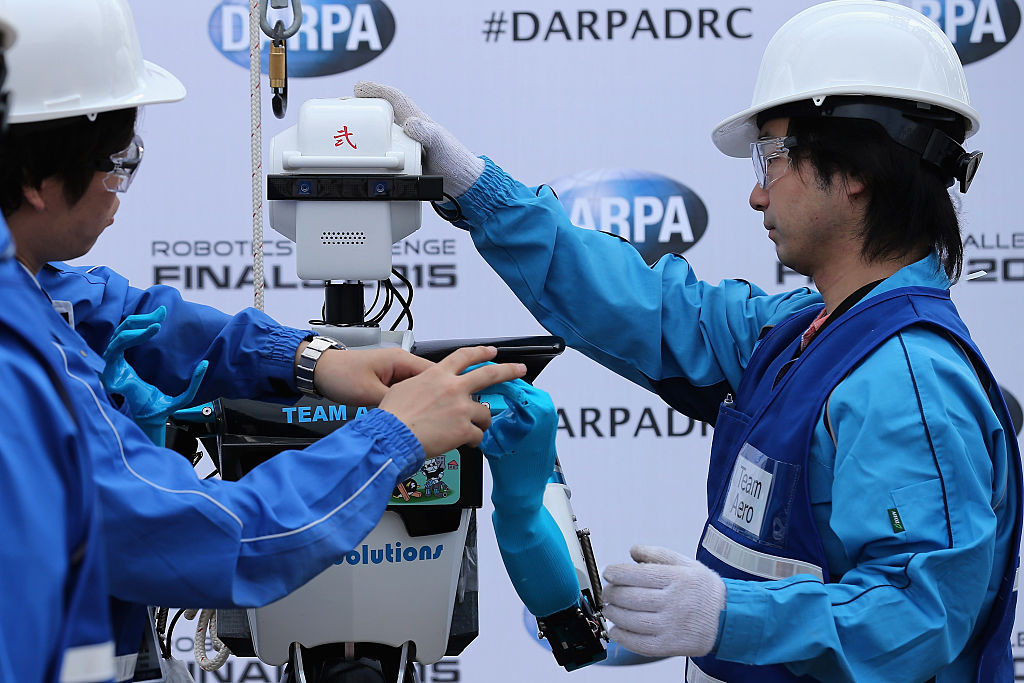Dominic Cummings’s two catchphrases ‘take back control’ and ‘get Brexit done’ have transformed British politics. Now the PM’s top aide wants to do the same with the British economy through the creation of another ARPA. But will it work?
The first Advanced Research Projects Agency was created in the US in 1958. The previous year the Soviets had launched the world’s first artificial orbital satellite, Sputnik, which made Americans fear that the USSR’s economy was about to overtake the US’s. The thought was that only if the US immediately copied the brilliant engineers who ran the Soviet Union could the West hope to keep up.
ARPA was the outcome. Intended to create innovative research, its staff weren’t to do anything boring like be accountable to anyone for the taxpayers’ money they spent. Instead, they were set loose to think freely. The Americans were to invent the personal computer, the internet, emails, Silicon Valley and all the other tech goodies we enjoy today as a result. Or so the theory goes.
Now, to be fair, we do owe Silicon Valley to ARPA. Silicon Valley’s foundational institution was XeroxPARC, the Xerox Palo Alto Research Center, which invented the mouse, windows, pop-up menus and the trash can—indeed, the graphical user interface—as well as the laser printer. In short, XeroxPARC invented the personal computer. Oh, and it pioneered an ethernet network and sent ‘emails’.
There are only a limited number of good researchers, and if governments remove them from the market to hang loose around their labs then the market will suffer.
But in his 2002 book Digital Culture, Charlie Gere reveals that crediting these inventions to ARPA isn’t so simple:
The first head of XeroxPARC was Bob Taylor [of] ARPA’s computing research arm… The Mansfield amendment and the presence of Taylor at XeroxPARC meant that many talented computer scientists and researchers who had been ARPA-funded were drawn to the Centre [ie, the Xerox Palo Alto Research Center].
The Mansfield amendment was the notorious amendment by which Senator Mike Mansfield, in 1973, stopped ARPA from doing any further pure research. Thereafter it was to be limited only to applied defence work. Its name subsequently changed to DARPA (the Defense Advanced Research Projects Agency.) At the time the Mansfield amendment was blamed for destroying American science, but in the meantime its newly-redundant researchers streamed out to XeroxPARC, the Xerox Palo Alto Research Center, to invent all of the above.
So it was because the US’s ARPA was decimated that the US pioneered today’s tech revolution. And Dominic Cummings wants to create one here?
The problem, of course, is the concept of ‘crowding out’. There are only a limited number of good researchers, and if governments remove them from the market to hang loose around their labs, doing their own things, the market will suffer.
As we’ve already discovered in Britain. It was in 1963 that Harold Wilson launched the White Heat of the Technological Revolution to pour taxpayers’ money into British science and to thus transform our economy, yet that transformation ended in 1976 when Denis Healey, the Chancellor of the Exchequer, had to turn back from Heathrow Airport to beg the IMF for an emergency loan; and it was the failure of government-funded research to transform the economy that led Shirley Williams to conclude that ‘for the scientists the party’s over.’
One of the key economic facts to emerge from the last century or so is Moore’s Law. Economic growth emerges out of new technology, and since 1890 computing speed per unit cost has—as computing has passed through its electromechanical, relay, vacuum tube, transistor and integrated circuit phases—doubled every two or so years. Moore’s Law shows how, through the very different eras of Pax Britannica, the Great War, the Roaring Twenties, the Great Depression, the Second World War, Bretton Woods, and neoliberal globalization, technology has progressed inexorably.
The indifference of technological growth to different market and to different funding regimes reflects the fact that new technology, even in industry, emerges—unexpectedly perhaps—by competitors contributing to a common pool of knowledge. And the only force that might damage that is, as the USSR showed, the state: if the state pulls researchers out of the market, Moore’s Law will be stymied and we’ll be impoverished.
Another key fact Cummings should remember is that the private funding of research and development—which, as the OECD has confirmed, is the only sort of funding that translates into economic growth—soared during the 1930s. When easy market options close off, companies are forced into long-term projects such as research. Which is why productivity is higher in France than in the UK. It’s easy here to employ cheap labour and to import cheap goods, so companies do just that. But, in France, labour markets are less flexible, and globalization has been embraced less enthusiastically, so—like companies during the 1930s—French industrialists focus on raising productivity.
The funding of research is in many respects counter-intuitive. Dominic Cummings should remember this. ARPA might not be the miracle he thinks it is.






Comments